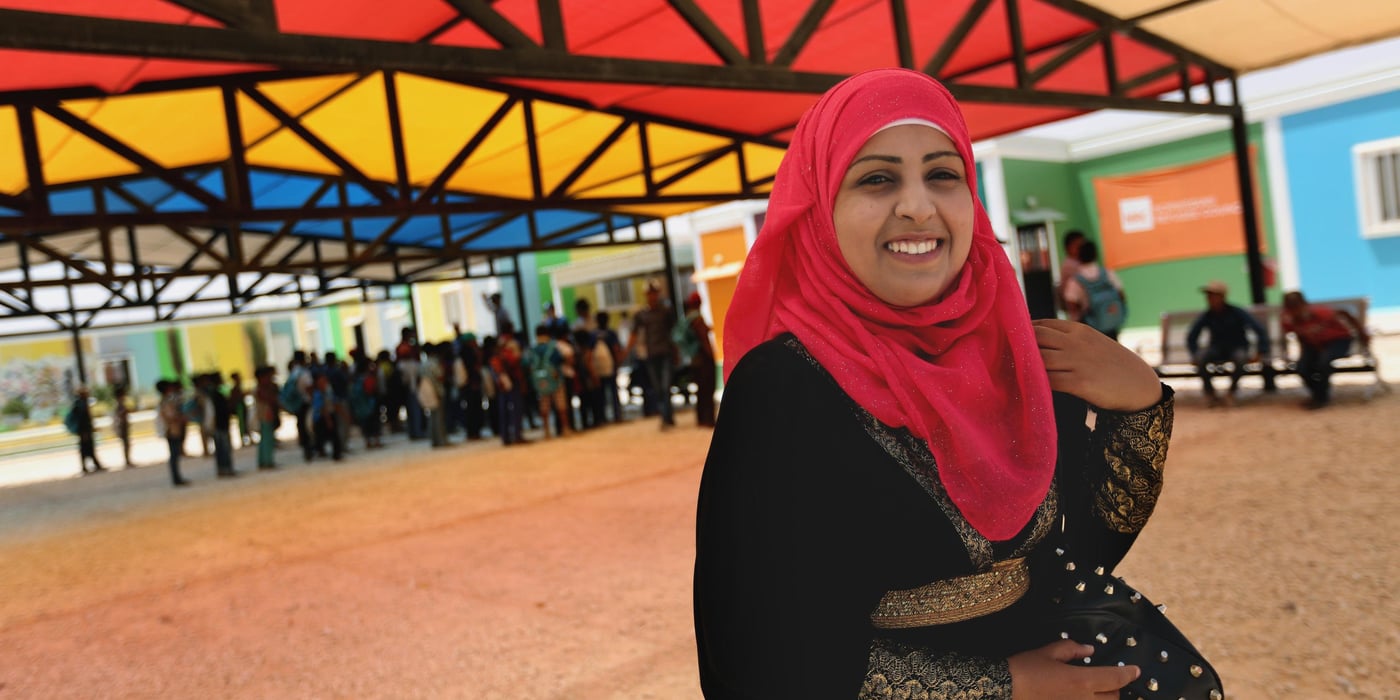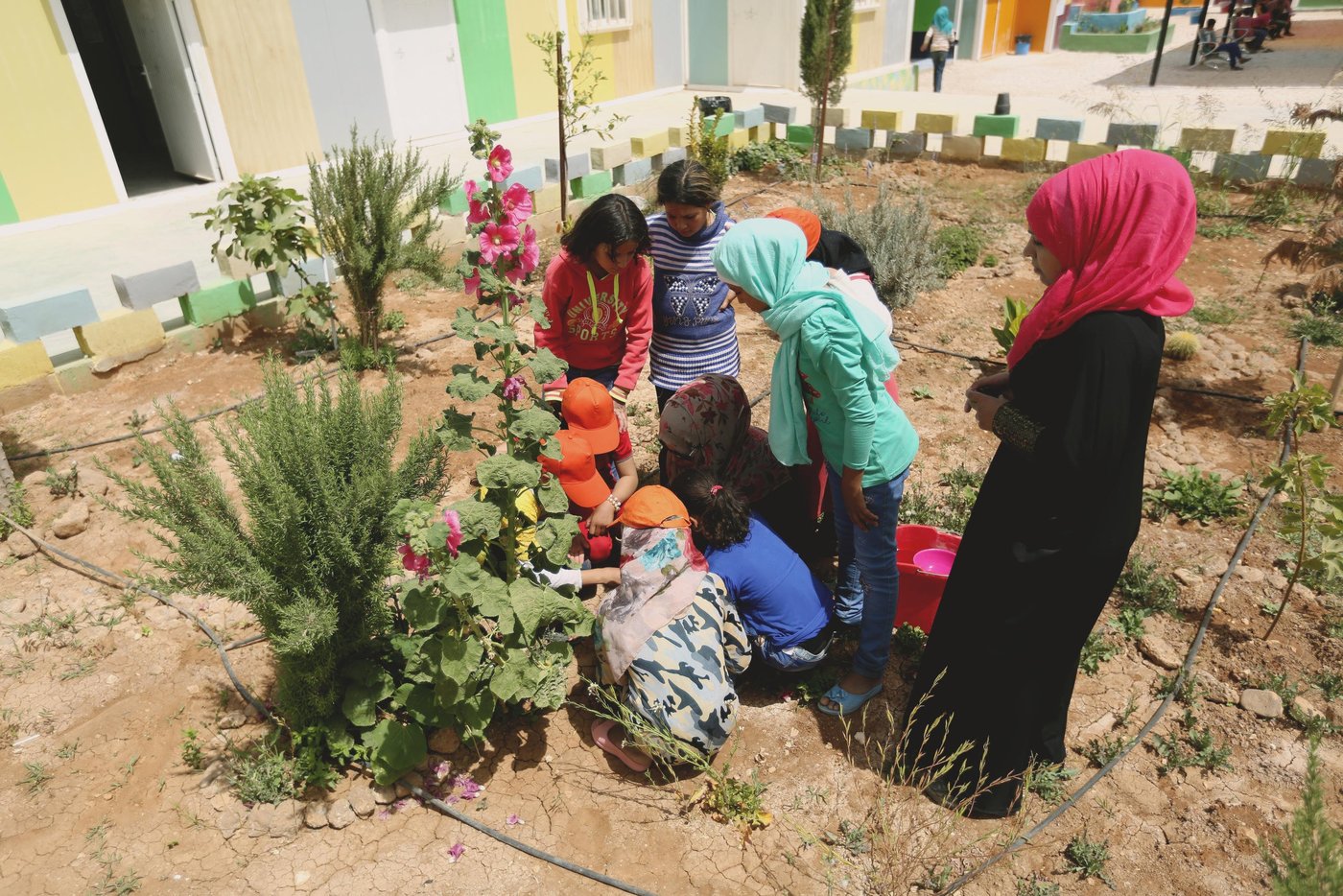
Almost every morning Alaa wakes up to the sound of children calling her name and jumping beside the small window of the white caravan she lives in to wake her up for school. Although it is a long walk to reach the centre, she looks forward to another day with her students.
The 28-year-old works as a teacher at the Norwegian Refugee Council’s (NRC) Learning Centre in Azraq refugee camp in Jordan, some 90km away from the border with her home country Syria.
Similar to over 54,000 Syrians who have left their homes and been registered in the camp, Alaa and her husband left Homs in 2014 in search of safety after the situation worsened in their city.
Back to teaching
Alaa was pregnant when she and her husband fled the war-torn city, and when they first arrived to the camp, her husband did not know how to help her relieve the stress and fear of arriving from a warzone.
A few months later, Alaa obtained a teaching position at the NRC centre and returned to what she loves to do. She began to feel better.
“The children helped me forget and get over the state that I was in, they fill my head with happy thoughts,” she says.
Alaa works within a recognised camp wide incentive labour scheme that provides opportunities for camp residents to contribute to their communities and earn some income to help meet their household’s basic needs.
The training integrates art and music in the learning and teaching processes, which makes the children happy and eager to learn more.Alaa, teacher and refugee
Training for development
Having worked as a teacher back in Syria, Alaa was interested in further developing her knowledge and skills in teaching.
The education programme at NRC recently trained the Syrian community staff on modern teaching techniques and strategies for children.
The training, which was conducted by NRC staff across three camps in Jordan – Azraq, EJC and Zaatari – aims at ensuring quality education for Syrian refugee children through coaching teachers on new teaching methods.
The training was divided into three core modules which aim at structuring knowledge, skills and professional attitudes in the fields of pedagogy, the national curriculum and professional ethics.
“The training integrates art and music in the learning and teaching processes, which makes the children happy and eager to learn more,” says Alaa.

Alaa is proud to have contributed with a set of activities to be added to the training and, with the support of NRC staff, to have developed new learning games to be used in the classroom.
“I love teaching, I’ve been doing it for a while and it is my purpose in life,” says Alaa, explaining that the relationship she has with her students is not the traditional student-teacher relationship, but something much more than that. “They treat me as their friend and their mentor, and it is much more than an ordinary job for me,” she says.
Although Alaa longs to return to Syria, she looks forward to seeing her students every morning and walking with them to school, the place she calls her second home in the camp.


